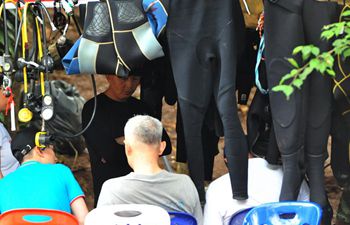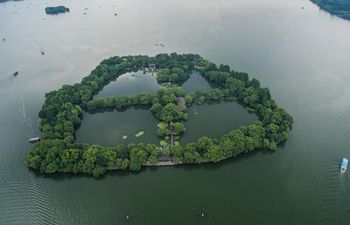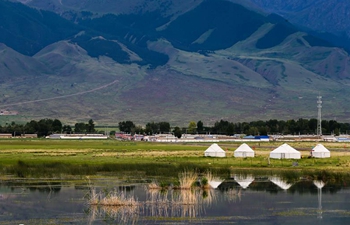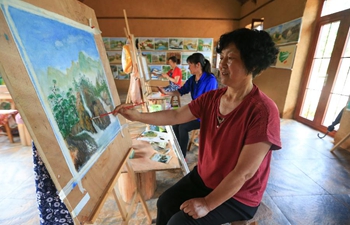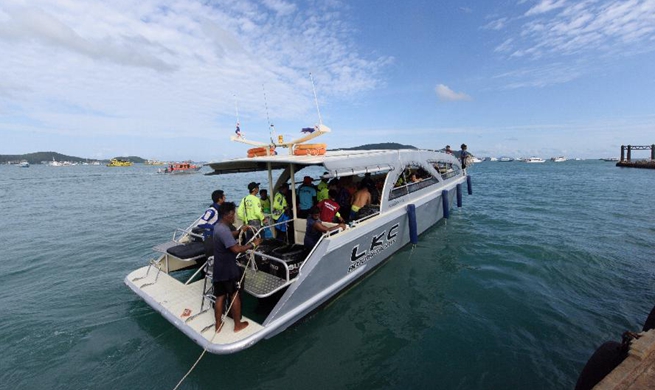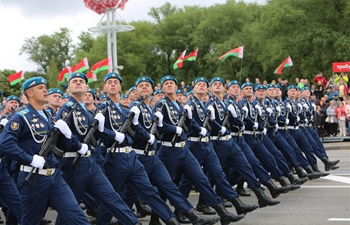ROME, July 6 (Xinhua) -- Humanitarian non-governmental organizations (NGOs) should be allowed to keep saving migrant lives in the Mediterranean, representatives from the UN refugee agency UNHCR said here Friday.
Every year, thousands of people fleeing war and destitution in Africa and the Middle East pay exorbitant sums to human traffickers in hopes of reaching Europe across the Mediterranean.
The traffickers' preferred departure point is Libya, which lies close to Italy's southernmost islands. Many migrants perish in the attempt, and many more are rescued by humanitarian search-and-rescue vessels, the Libyan Coast Guard, the EU's Frontex border patrol, and passing merchant ships.
The new rightwing-populist government of Italy recently closed its ports to search-and-rescue NGOs, saying humanitarian groups have no business doing the job of the Libyan Coast Guard. On July 5, the Interior Ministry announced it has donated 12 coast guard cutters to Libya.
"The Libyan Coast Guard does what it can to save lives with the limited resources at its disposal, but it is unrealistic to believe that they can save all lives at sea," UNHCR Libya Representative Roberto Mignone told reporters here. "This is why we believe it is important to maintain the presence of third actors such as NGOs, whose role is essential."
He was echoed by UNHCR spokesperson Carlotta Sami, who pointed out that although the number of migrants leaving from Libya has dropped, the death toll has risen.
"One in 7 died this year, compared to one in 38 last year," she said.
With regards to the situation within Libya, the majority of migrants are mixed with Libyans displaced by internal conflict, who also receive UN assistance.
"It is not true that most migrants are being detained in Libya," Mignone explained. As of May 13 this year, the UNHCR registered over 52,000 asylum seekers and refugees in Libya. Of these, some 3,300 were being held in 17 official migrant detention centers, to which the UNHCR has access.
However, in response to questions from reporters, Mignone admitted that the number of detainees is currently close to 10,000.
While the official camps are severely overcrowded, Mignone said the horrific abuse and torture that have been reported in the media take place in hideaways run by human traffickers, who continue extorting more money from the migrants before packing them onto unseaworthy vessels without enough fuel to make the crossing to Europe.
As of May this year, 11 countries have committed to taking in 3,781 people evacuated from Libya by the UNHCR: Canada, Finland, France, Germany, Italy, Malta, the Netherlands, Norway, Sweden, Switzerland, and the UK.
"We have the capacity to evacuate 1,000 people (from Libyan camps) a month," Mignone explained. "Much depends on the will of the (international community) to take in refugees. Even if each country only took in 200-300 people, the system could be expanded and it could work quite well."
The UNHCR has funding requirements of 85 million U.S. dollars this year, of which, only 22 percent has been raised so far, the officials said.




